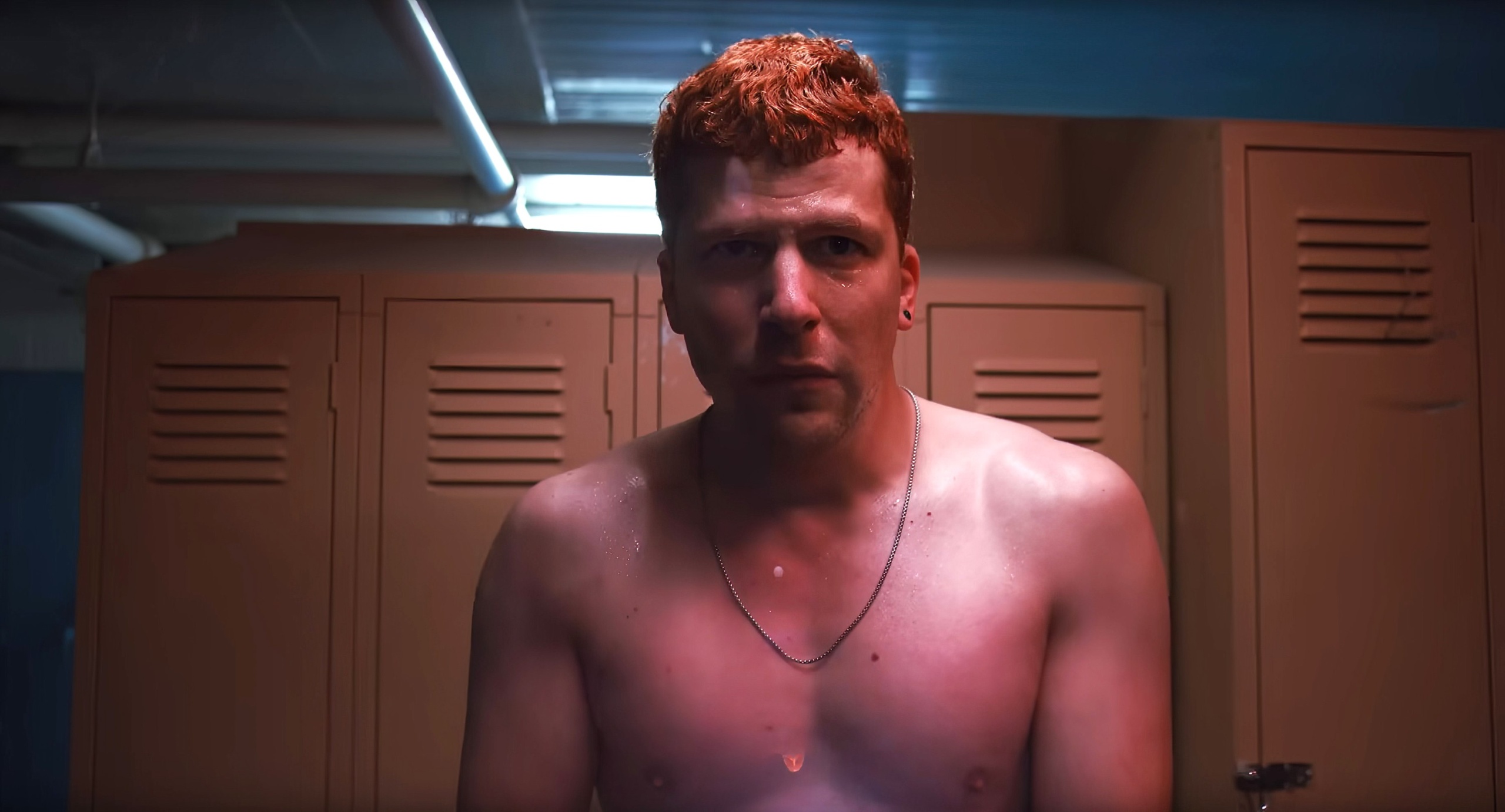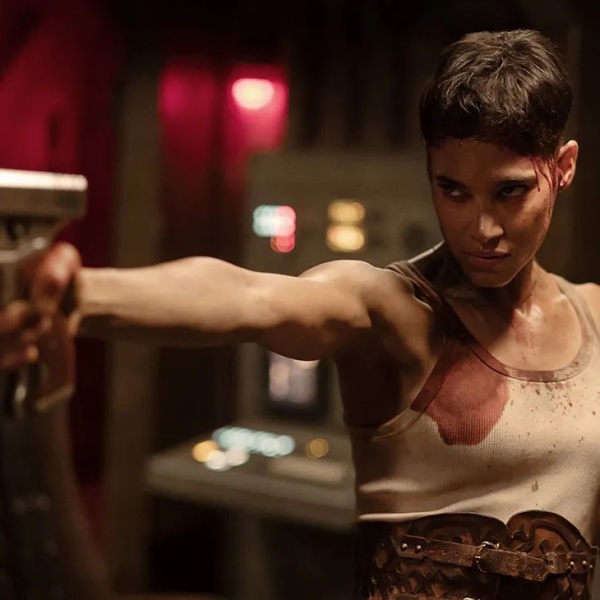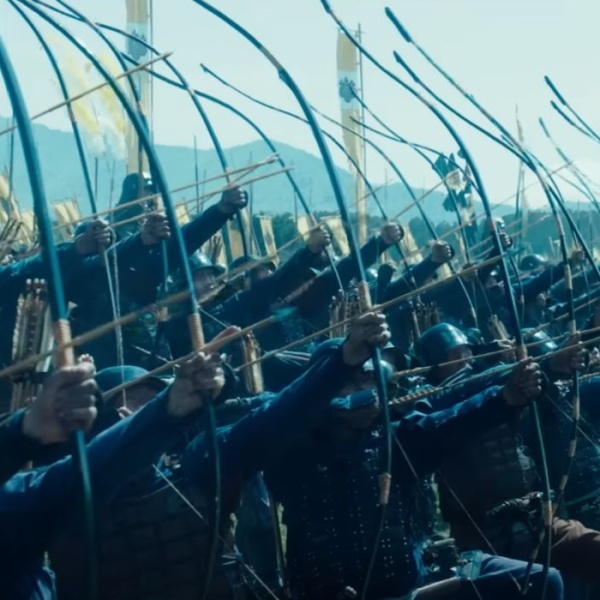Let’s start with the good news: “Manodrome” runs zero risk of inadvertently launching an online army of right wing grifters who use their misunderstanding of its message to hawk dubious supplements and training courses 25 years after its release. Which is more than can be said for David Fincher’s “Fight Club,” the movie it desperately wants to emulate. The bad news is that fact owes less to the film‘s articulation of its ideas than its lack of charisma, which is almost certain to prevent it from making the kind of cultural imprint that would allow for misinterpretations in the first place.
While it’s often unfair to compare one movie so directly to another, the blatant similarities between “Manodrome” and “Fight Club” make it unavoidable here. John Trengrove’s new film follows Ralphie (Jesse Eisenberg), a directionless man who finds solace in lifting weights after being laid off from his maintenance job. With his girlfriend Sal (Odessa Young) nearly nine months pregnant, his looming responsibilities create a sense that the world is constricting around him. He splits his time between the gym and his gig as an Uber driver, which barely pays him enough to cover his opioid habit. When he goes home at night to a partner who understandably wants more help preparing for a baby he pushed her to keep, he begins to wonder if domestic life is anything more than a hopeless dead end.
His aimlessness leads him towards the patronage of Dad Dan (Adrien Brody), an acquaintance of his drug dealer’s who prides himself on giving direction to depressed young men. After meeting at a Chinese restaurant, Dad Dan looks into Ralphie’s soul, and for the first time it feels like someone actually sees him. His isolated childhood after his father left him on Christmas Day. His struggles to find any kind of consistent income in an economy that devalues manual labor. The increased responsibilities and limited avenues for earning praise that come with middle age. Rather than blaming the outside world, Dad Dan simply validates Ralphie’s anguish and invites him into his “family.”
Believe it or not, the grown man who insists on being called “Dad Dan” does not have a conventional living situation. The three-time divorcee has opted to build a family of his own by inviting dozens of men to live communally on his large estate. Split into tiers of “Brothers” and “Dads,” these men support each other by sharing chores, sleeping in bunk beds, and bonding over semen retention, ritualistic confessions, and cult-like chants about the importance of respect. They’re encouraged to abandon their previous lives in pursuit of group celibacy, with many simply ghosting their wives and families before moving in with their brothers.
Ralphie prefers “family life” to his actual family life, so he begins spending more and more of his time at Dad Dan’s house. They even take a cute little group trip to the mall that would infuriate the khaki-loathing Tyler Durden. While Ralphie can’t bring himself to make a fully clean break from Sal, he begins ignoring her for days at a time while committing increasingly violent crimes to feed their bank account and his insatiable yearning for respect. It isn’t long before he finds himself in the most trouble ever faced by a Jesse Eisenberg character not named Fleishman.
With the help of a hideous haircut, Eisenberg gives a convincing performance as a repressed loser who never discovered who he is and has officially run out of time to start. But Trengrove’s script is as directionless as his protagonist. Ralphie’s erratic behavior isn’t grounded in any kind of ideology or goal, and his home life with Sal is never developed enough for his irresponsibility to matter. Despite competent execution on all filmmaking fronts (and a slick Adrien Brody performance that, once again, reminds us that he only gets more handsome and charming with age), the biggest takeaway from “Manodrome” is a feeling of emptiness and wasted time.
Despite the film’s obvious failure to emerge from the shadow of “Fight Club,” it’s interesting to observe how cinematic portrayals of male desperation have evolved over the past quarter century. Y2K-adjacent films like “Fight Club” and “American Beauty” followed men who were secretly brimming with vitality and felt neutered by a society that wanted to sand down their rough edges with responsibilities. They blew up their lives with toxic behavior because they wanted to live more and decided that easy lives of quiet prosperity couldn’t satisfy their libidos and thirst for adventure.
But when “Manodrome” checks in with the next generation of sad men, that restless aggression has been replaced with apathetic ennui. Dad Dan might pay lip service to primal masculinity with his chants and rituals, but all he’s really offering is a place to chill without any major sacrifice being expected of you. There’s no large goal or group project or vision of society that anyone feels compelled to work towards. These men shun their obligations because they want to conquer and fuck less.
It’s a societal shift that makes for duller movies, but Trengrove’s understanding of the ways that uneducated men are failing (and being failed) is spot-on. It’s precisely the kind of thing that more filmmakers should be looking into. But even if modern society is sapping these men of their energy, that doesn’t excuse movies that do the same thing to the rest of us.
Grade: C+
A Lionsgate Films release, “Manodrome” opens in theaters and on digital platforms on Friday, November 10.


